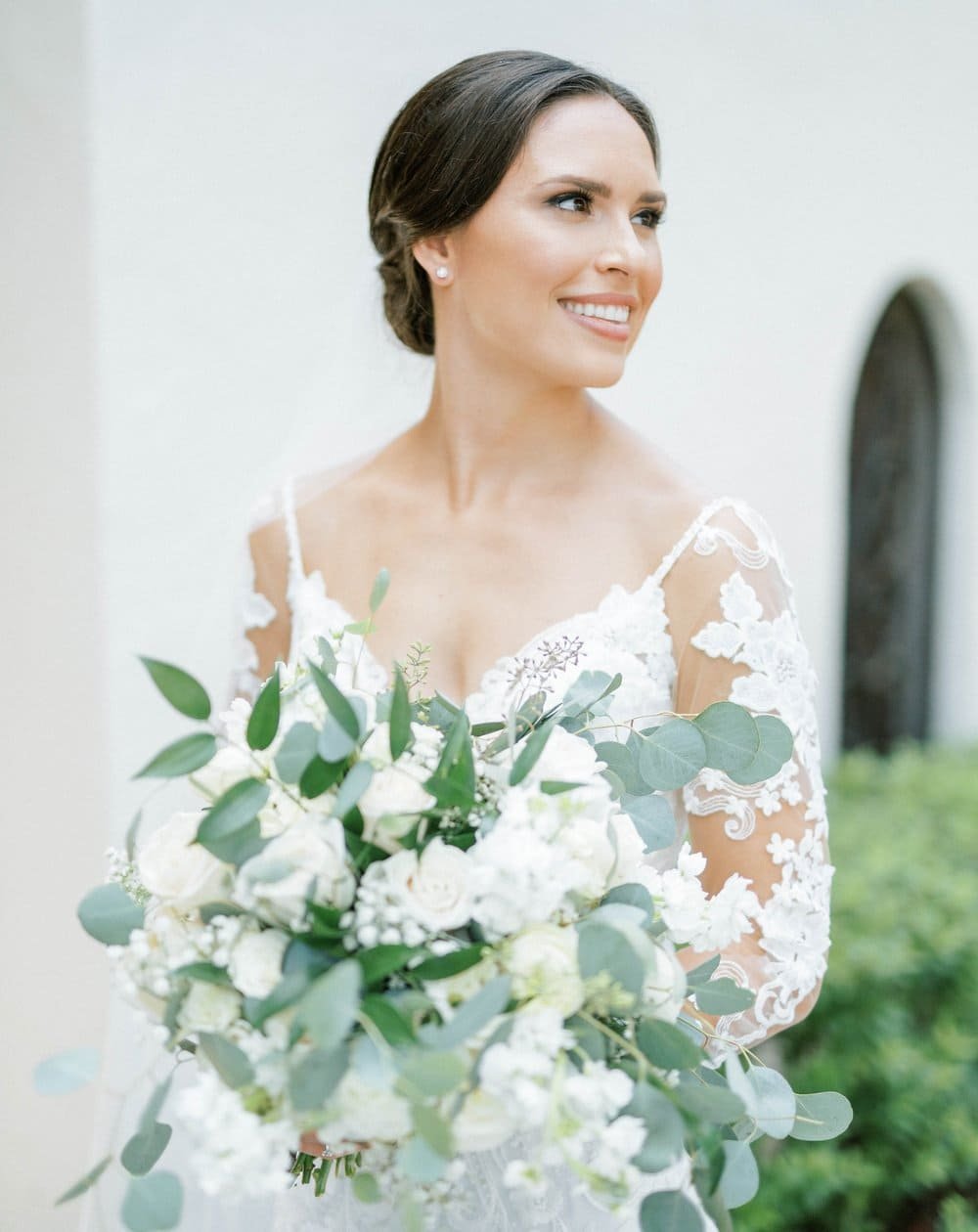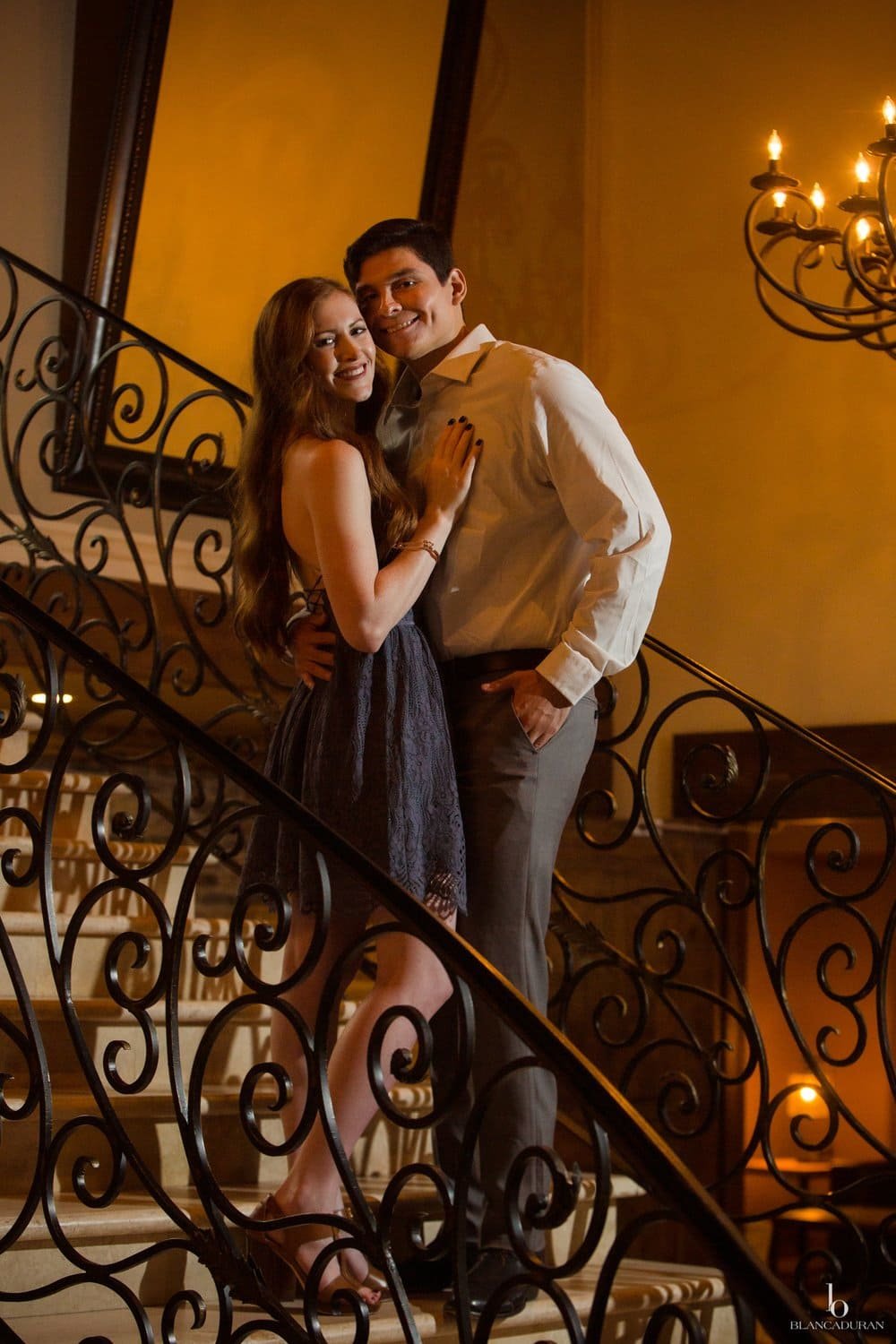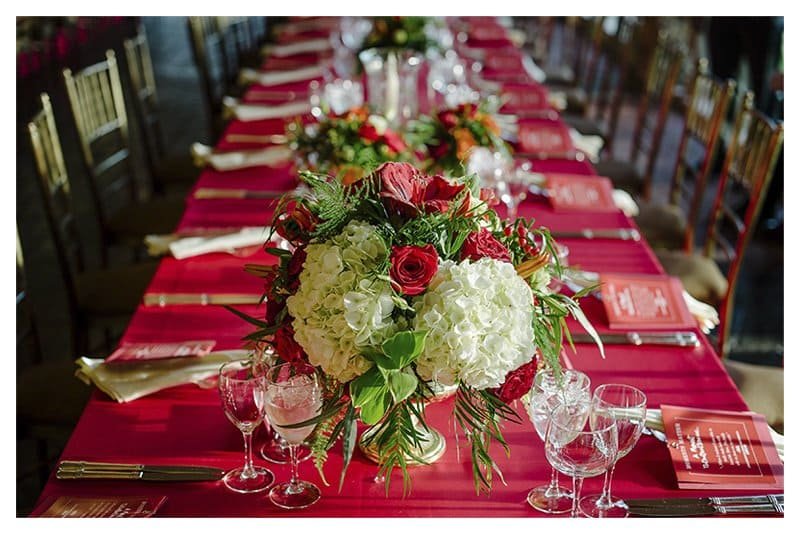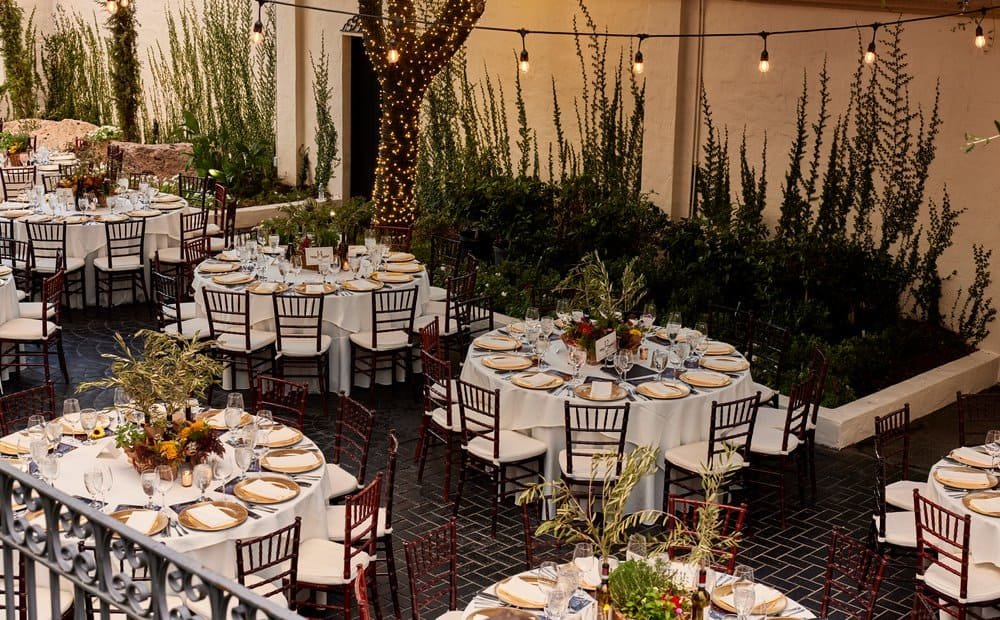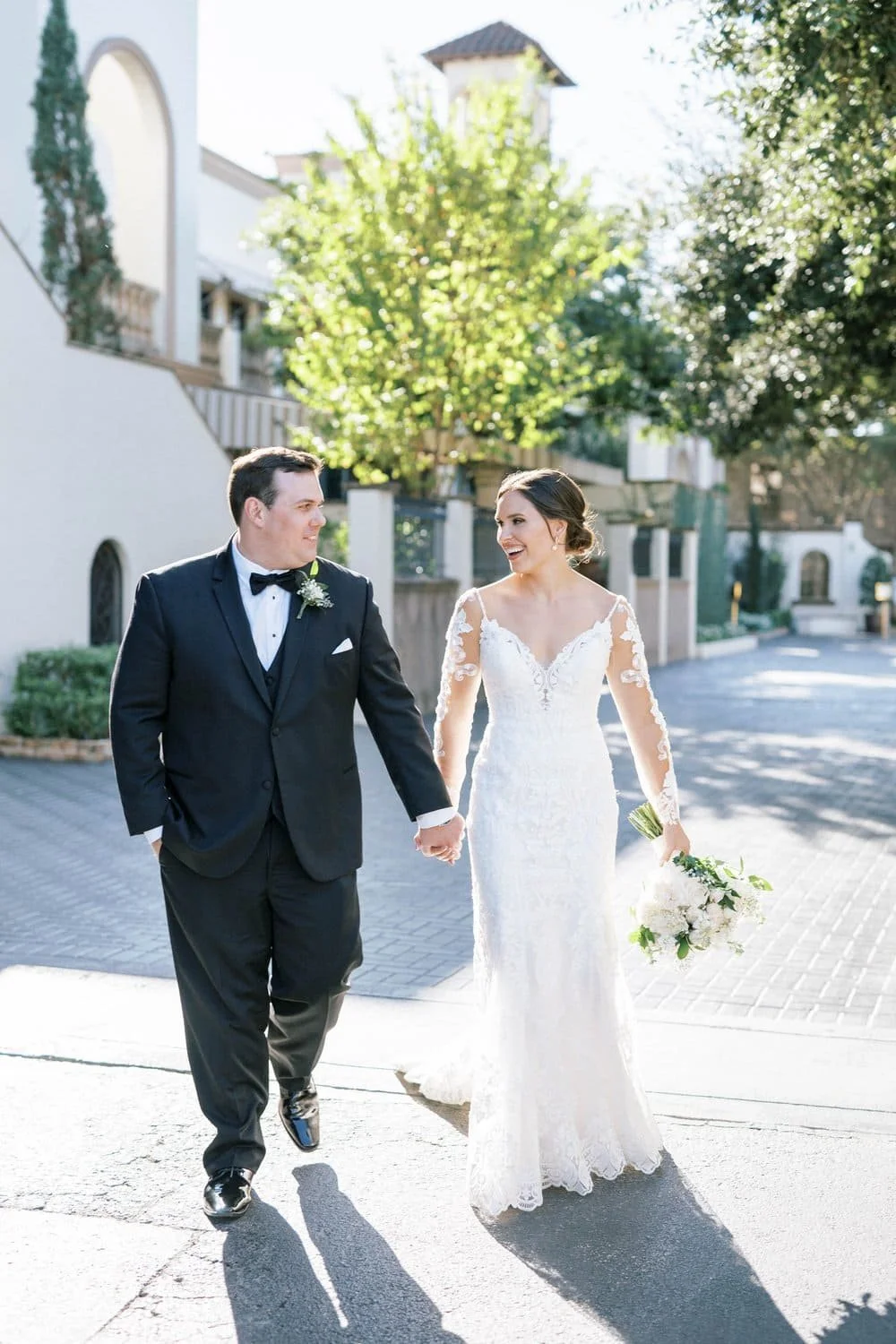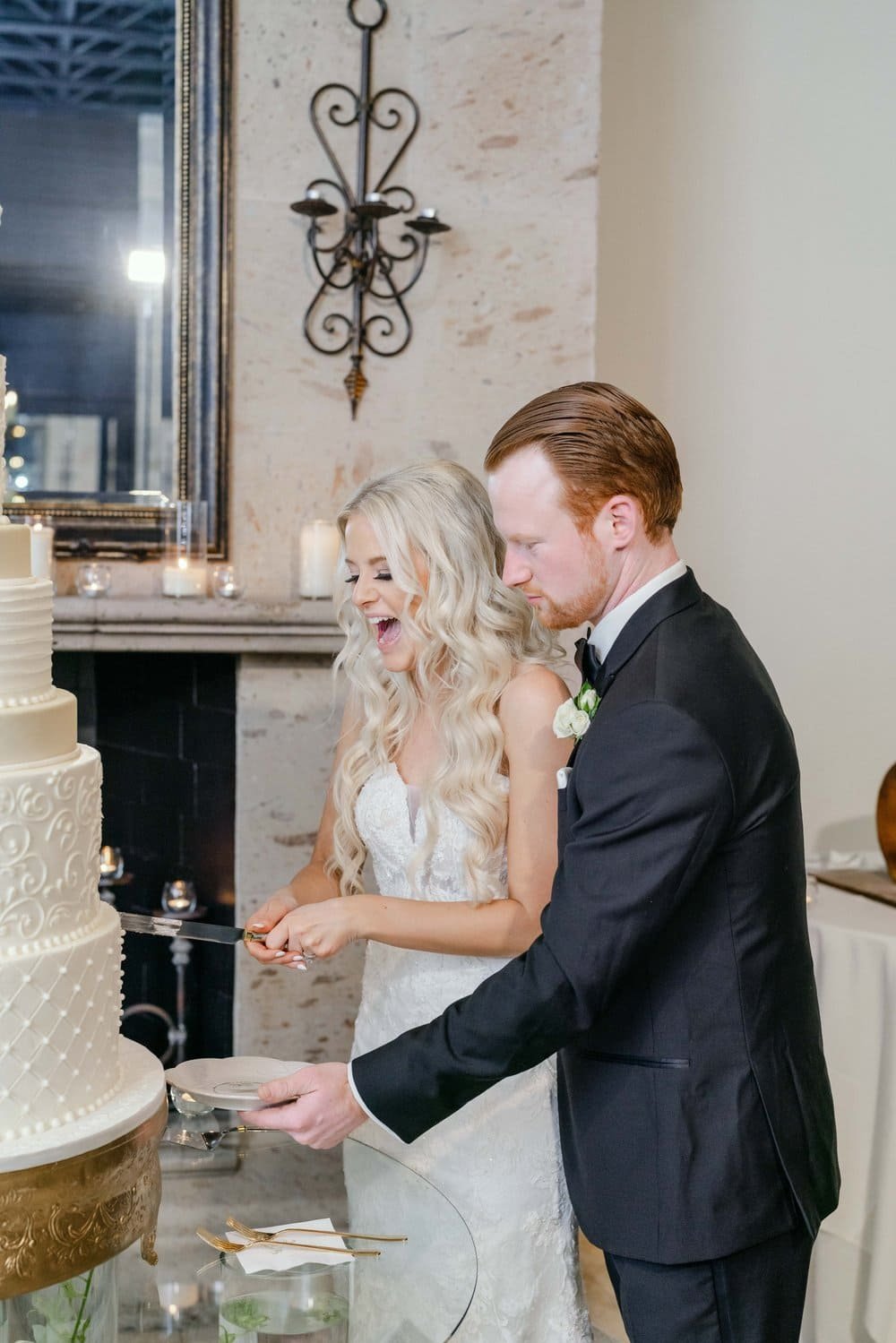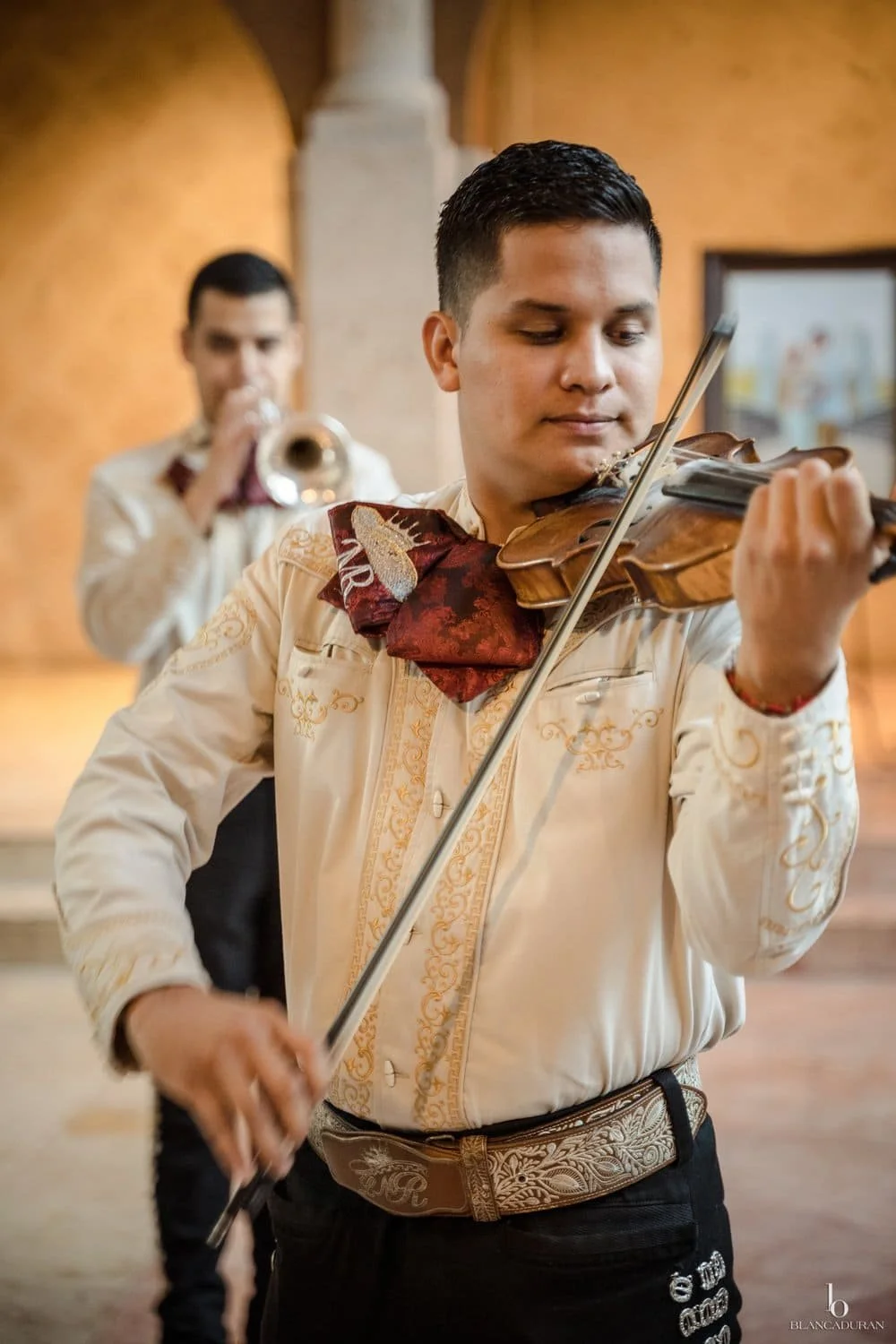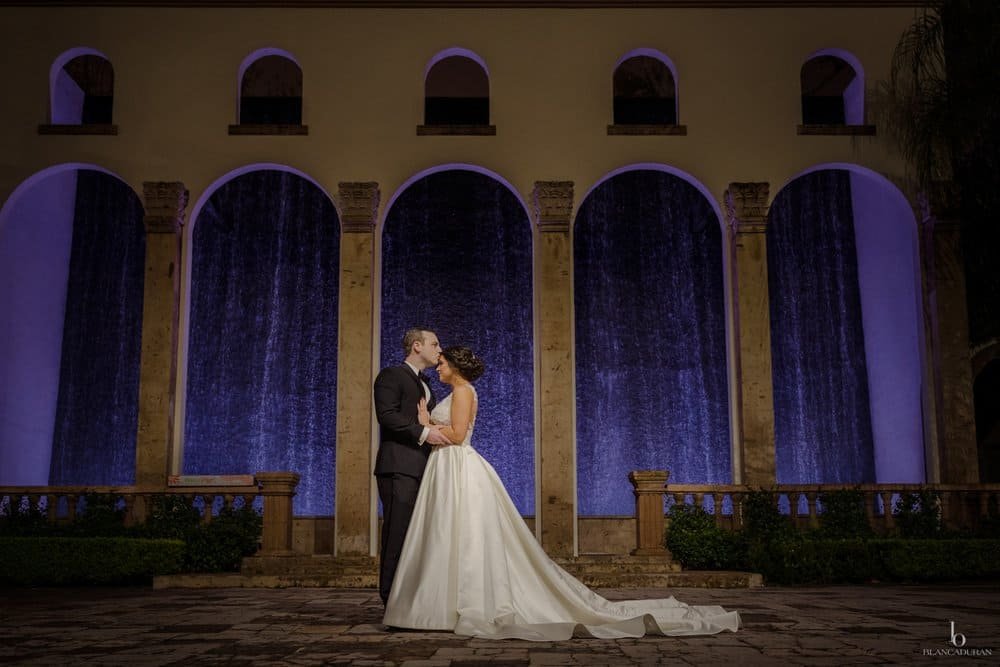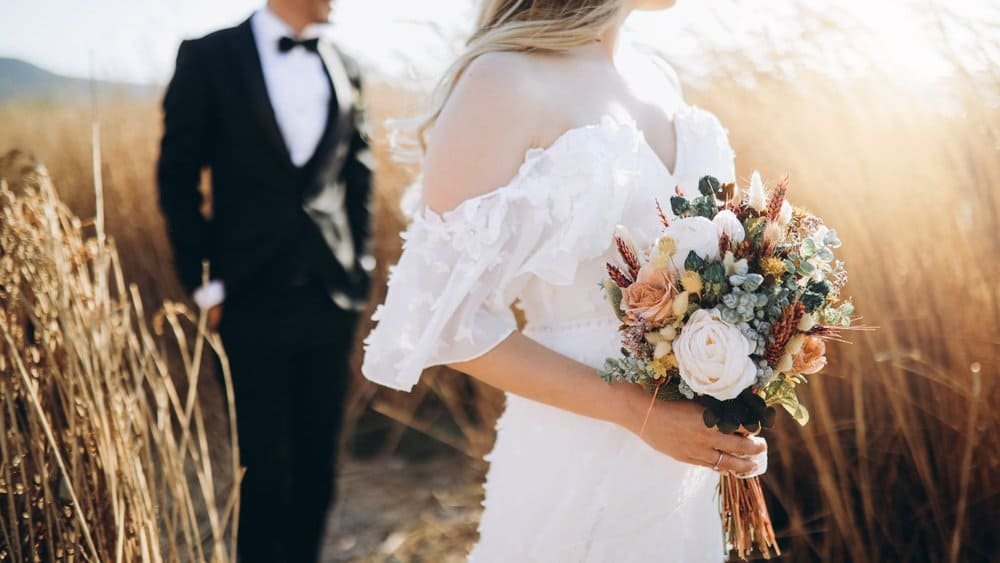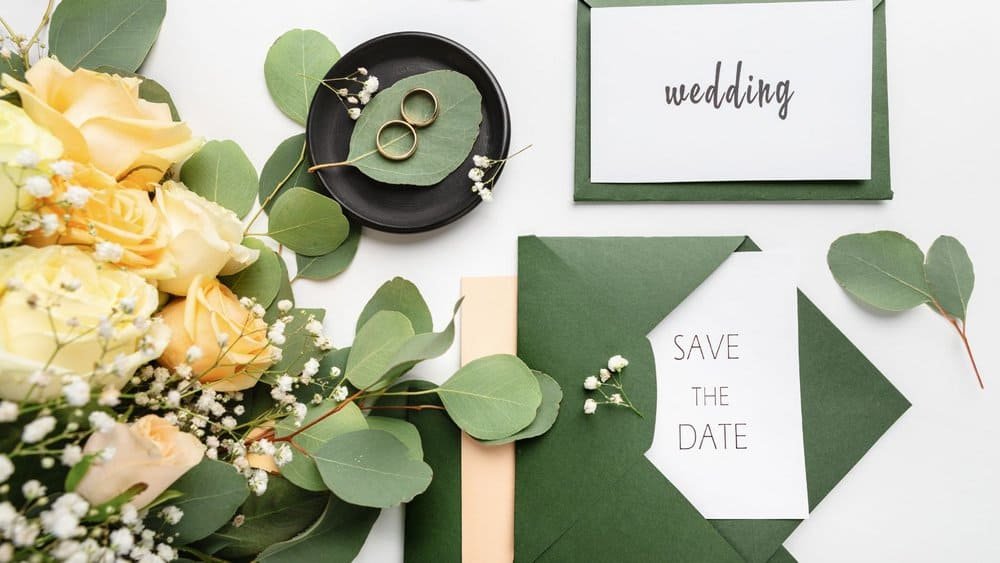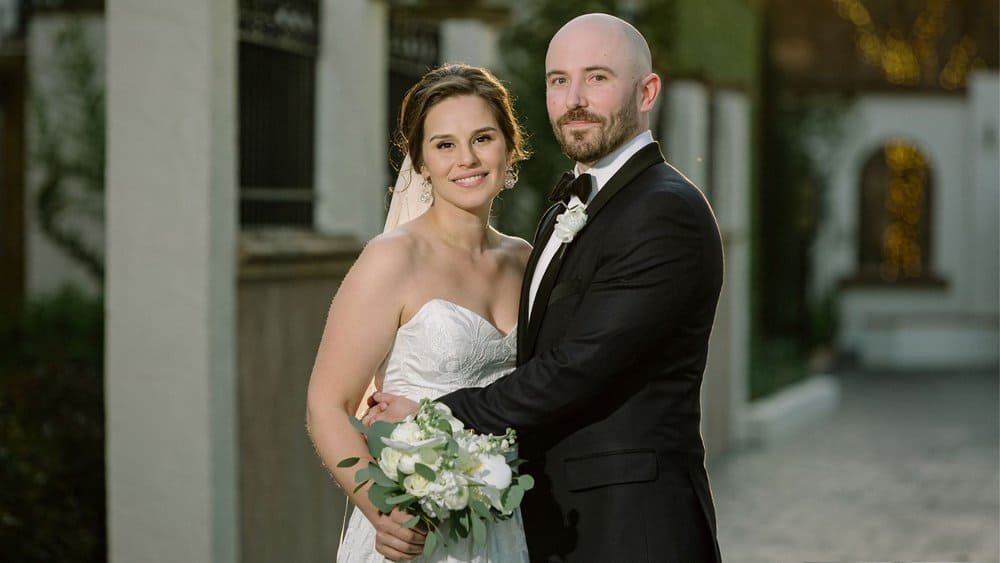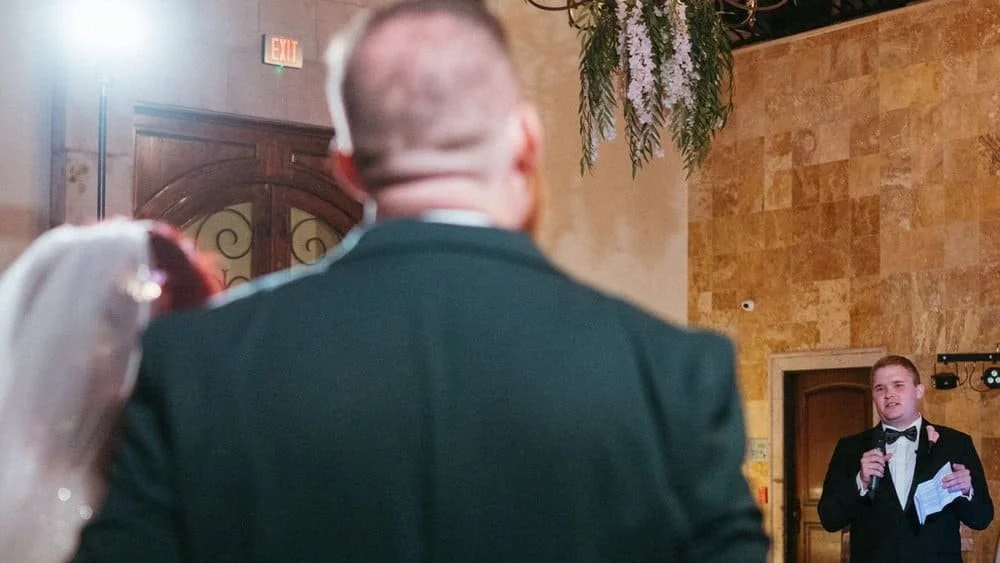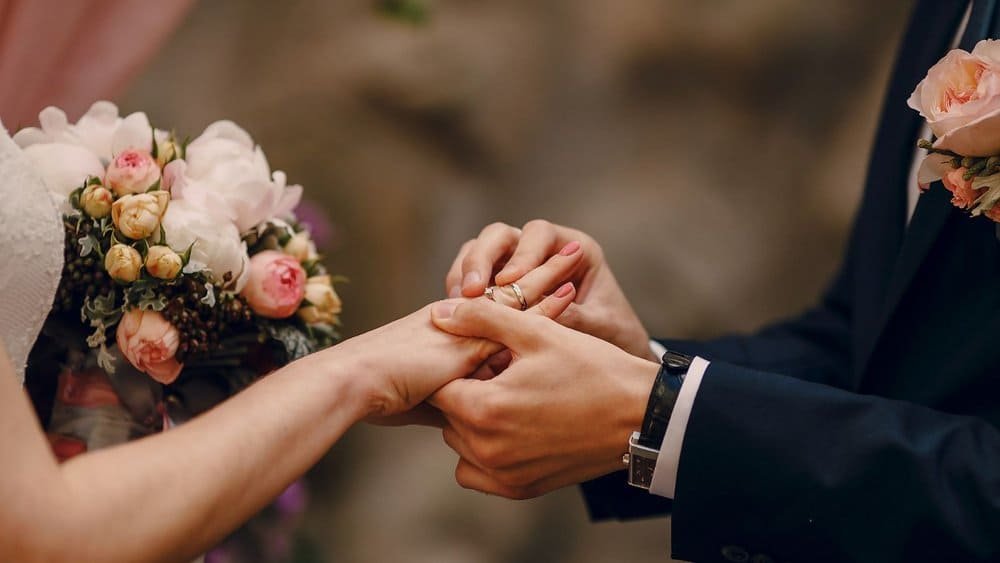While wedding planning can be exciting, it also comes with some less-than-fun aspects.
For many people, one of them is dealing with costs and creating a detailed wedding budget. Few couples get excited about this step, but it lays the foundation for nearly every decision you'll be making.
And as you look into expenses for your wedding gathering, from renting affordable wedding venues in Houston to buying wedding bands, you should know that some wedding costs are more apparent than others.
To help you create a wedding budget breakdown and plan more effectively, we’ve put together a list of hidden fees that can be lurking out there.
The good news is, knowing what to look for—and how hidden fees could impact your overall wedding budget—can help reduce your stress. And that, in turn, can make your wedding planning process easier and help you enjoy some of the more rewarding aspects of preparing for your dream wedding.
Hidden Fees Overview
Here are some less-than-obvious expenses to be on the watch for.
Additional Servers
If you do a wedding budget breakdown, you'll see that catering costs for wedding receptions can represent 29% of total wedding costs.
If you're hit with hidden labor fees, your catering costs can consume even more of your wedding budget.
We encourage you to ask about labor fees for servers, bussers, attendants, dishwashers, and anyone else who could be on duty.
Catering and Travel Fees
When couples opt to bring in outside caterers for their reception food, their expenses can also include travel fees for the team that shows up to feed their friends and family.
This cost usually is charged on a per-mile basis.
The hidden fees don't stop there: Your catering service may also bill you for off-site catering fees and rental fees.
You can avoid these costs by working with a venue that provides catering services. The Bell Tower on 34th offers multiple catering and beverage packages.
Cheap Wedding Venues
Yes, you read that heading correctly. Sometimes, wedding venues that appear to be your most affordable option at first glance will be the most likely to hit you with a long list of fees.
As you consider wedding venues in Houston (or any location), read their service agreements carefully and ask them to go over all of the fees and additional costs you should be expecting.
There’s nothing wrong with researching affordable wedding venues, we’re simply warning you to make sure you know exactly what you’ll be paying.
Bar Costs
Does the venue you’re considering provide a bartender, or will you need to hire one?
The amount you'll spend for a bartender for your big day varies quite a bit, depending on the level of service you need (pouring wine vs. making your signature cocktail. Rates generally range from $30 to $50 per hour.
But, if you need to hire a bartender, your guest count will impact your wedding budget, too. Unless you’re planning something very small, you really should be thinking in terms of hiring a bartending staff. A good general rule is to hire one bartender for every 35 guests. You also should plan to tip your bartenders $10 to $15 per guest. (You should make sure they haven't received tips from guests, though.)
You may also be expected to lay out some dollars for your bar supplies, including alcohol, glassware, mixers—even security.
Not all places will require you to pay for these costs, though. The Bell Tower on 34th, for example, offers a variety of inclusive bar packages beginning at $22 per person.
Cake-Cutting
Your hidden wedding fees could also include a charge for wedding cake-cutting, known as a cakeage fee.
What exactly would you be paying for?
This fee covers the cost of staff members cutting your wedding cake and serving it to your guests. Costs vary, but they can range from $2 to $5 per person.
Ask about this as you consider your wedding location. The Bell Tower on 34th does not believe couples should be charged for cake cutting.
Cancelation Insurance
This is not necessarily one of your hidden fees, but paying for event cancelation and postponement insurance often goes forgotten during wedding planning and the process of creating a wedding budget.
These policies are extremely valuable, though, and can protect you from losing money if you have to cancel or delay your wedding day.
The Bell Tower on 34th believes this kind of coverage is so valuable that we reimburse couples up to $400 for their policies.
Invitations and Thank-You Cards
You probably are including your save the dates and invitations in your wedding budget, but have you thought about the cost of the thank you cards you’ll be sending?
And along the same lines, you may be surprised to see how much postage for these items can add to your wedding expenses.
Not only that, but wedding stationery with square envelopes, oversized pieces, heavy pieces, and unusual shapes can cost more to mail.
Linens: Set-Up, Teardown, and Delivery
If you decide to rent linens, your expenses could include more than the rental of the linens themselves. Many rental services charge couples to deliver linens, and some venues will bill you to set them up and teardown after your wedding reception.
Ask about this and what your options are. Some wedding packages include linens. The Bell Tower on 34th includes floor-length linens and napkins.
Parking
This one may surprise you, but parking is one of the more common hidden fees couples encounter.
If your venue doesn’t have enough parking spaces, they’ll charge for providing valet parking or additional parking for your guests.
This expense usually runs from $2 to $10 per car.
Ask about parking for every wedding location you consider.
The Bell Tower on 34th, you don’t have to worry about this expense on your wedding day. We do not charge extra for valet parking services.
Post-Wedding Cleanup
This is another area couples don’t always consider: Some wedding locations and vendors charge cleaning fees.
This cost is for putting away decor and rentals, clearing food and plates, and throwing out trash.
Find out in advance if the vendors and sites you’re considering charge clean-up fees, and if they do, how much they are.
Your outdoor wedding contingency plan
While we strongly encourage couples to prepare for the possibility of uncooperative weather during their outdoor weddings, the supplies you line up to keep your guests dry and comfortable will plump up your budget. Be sure to factor in the costs that come with renting outdoor heat lamps or tents—and even having a supply of extra umbrellas.
Security
When most couples think of wedding budgets they probably think of the dress, the engagement ring, vendors, and food—but security?
Yes, wedding security guards cost money, and you may need them.
In fact, in recent years, many wedding locations have been requiring security when alcohol is served at a wedding or event.
Hiring security officers can cost approximately $150 to $500.
But, it’s not a given that security will be among your hidden fees. At The Bell Tower on 34th, a uniformed security Officer will be onsite during your wedding ceremony and your reception.
Silverware and Glasses
When you talk with wedding venues about your reception, ask about what’s included in your package.
Some locations simply provide space, leaving you responsible for what goes on the table, including your silverware and drinking glasses.
Other businesses offer catering packages, but even in those cases, be sure to be clear on what’s included.
If you need to rent your flatware (silverware), it can range in price from $200 to $500.
The glasses on your tables, from wine and water glasses to cocktail glassware, can run you $200 to as much as $1,000.
Taxes and Service Charges
Make sure the estimates of prospective locations and vendors are clear about the taxes and service charges they’ll be charging you.
It’s common for businesses to leave these costs out when they provide quotes.
The Bell Tower on 34th specifies all of the fees, taxes, and service charges customers will be charged upfront so there are no unpleasant surprises.
Vendor Meals
Most couples don’t always think about this as they create their wedding budgets, but you should plan to provide a meal for every vendor present during your reception. That list could include your planning team, photographers, videographers, your band or DJ, and other entertainers.
Talk with your caterer and ask how much you can expect to pay for your vendor meals.
By the way, couples sometimes forget to include themselves in the headcount for meals. Be sure to add the cost of a plate for each of you to your wedding budget.
Wedding Attire Alterations
While you’ve probably been researching wedding gown costs, don’t forget to consider the possibility you’ll need to pay for alterations, which can add a couple of hundred dollars or more to your wedding budget.
Of course, the groom's wedding attire should be considered, too. Rentals should fit perfectly, but if you buy a suit or tuxedo, alterations could cost $30 to $100.
Wedding Favors
This isn’t necessarily one of the hidden fees couples encounter, but wedding favors can add significantly to your expenses. These gifts tend to cost $3 to $8 each. Depending on your guest count, they’ll add up quickly.
Wedding Party Gifts
Have you been thinking of offering gifts of appreciation to the members of your wedding party?
This is a lovely way to say thank you, and the members of your wedding party will appreciate it, but you should know that the cost of providing these gifts can add up, impacting your overall wedding budget.
Wedding Website
You absolutely can build wedding websites for free, and a variety of great options are available.
However, there is the temptation to pay for a custom domain, which can range from about $20 to $70.
And, some couples opt to pay for a more customized website, which generally comes with monthly costs.
Sites with planning features, like invitation tracking and guest communication options, tend to be more expensive.
Welcome Basket Delivery
If you plan to provide welcome baskets for the guests who travel to join you on your wedding day, you could have more hidden fees waiting for you.
As you research welcome baskets, look into how they’ll be delivered to guests’ hotel rooms and how much you’ll be charged.
More on Tips
We encourage you to consider tipping as you develop your wedding budget.
Etiquette calls for tipping many of the people who play a role in your wedding day including your wedding officiant, photographers and videographers, florist, musicians, hairstylist and makeup artist, transportation providers, DJ, waitstaff, and parking attendants.
The Bell Tower on 34th, based in Houston, is an affordable wedding venue available for public and private events, including weddings. Spend time on our website to learn more.

